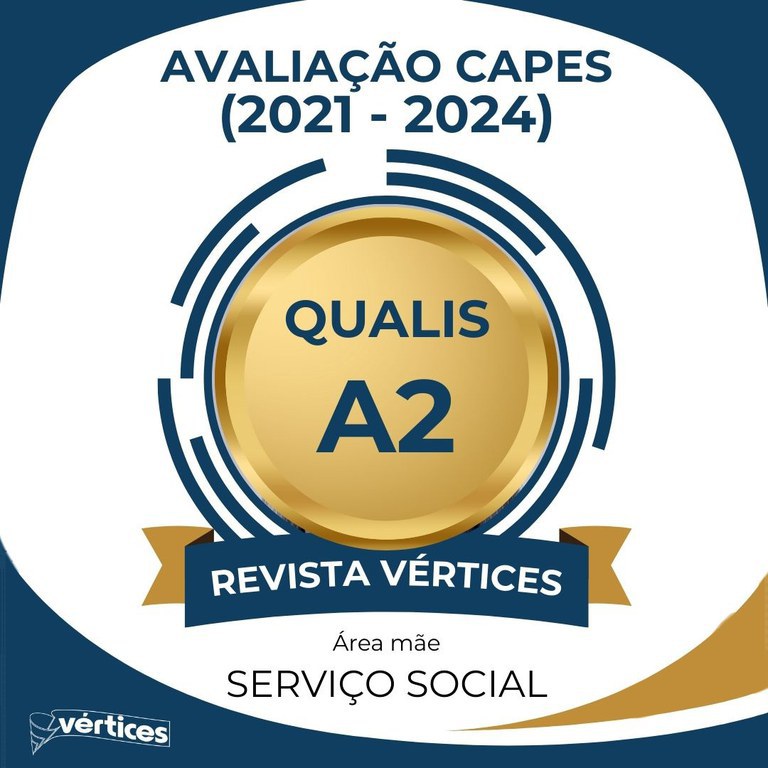Crossed looks at risks and disasters
DOI:
https://doi.org/10.19180/1809-2667.v23n12021p4-15Keywords:
.Abstract
.Downloads
References
ACOSTA, V. G. The Anthropology of disasters in Latin América: State of the Art. 1. ed. Londres: Routledge, 2019.
BECK, U. World Risk Society. Cambridge, UK: Polity Press, 1999.
CARMO, R.; VALENCIO, N. (org.). Segurança Humana no contexto dos desastres. São Carlos: RiMa Editora, 2014.
DOUGLAS, M.; WILDAVSKY, A. Risco e Cultura: um ensaio da seleção de riscos tecnológicos e ambientais. Rio de Janeiro: Elsevier, 2012.
DUTRA, A. Gestão de Desastres e Serviço Social: o Trabalho de Assistentes Sociais junto aos órgãos municipais de proteção e defesa civil. 2. ed. Curitiba: Appris, 2021.
FAUGÈRES, L. La géo-cindynique, géocience du risque. Bulletin de l´Association de Géographes Français, n. 3, Paris, 1991. p. 179-193.
FIOCRUZ. FUNDAÇÃO OSWALDO CRUZ. Boletim do Observatório Covid-19: semana epidemiológica 14 de 2021. Disponível em: https://portal.fiocruz.br/sites/portal.fiocruz.br/files/documentos/boletim_covid_semana_14_2021.pdf. Acesso em: 19 abr. 2021.
GIDDENS, A. A vida em uma sociedade pós-tradicional. In: BECK, U.; GIDDENS, A.; LASH, S. Modernização reflexiva: política, tradição e estética na ordem social moderna. São Paulo: Editora UNESP, 1997. p. 72-133.
GUIVANT, J. S. A trajetória das análises de risco: da periferia ao centro da teoria social. Revista Brasileira de Informações Bibliográficas, São Paulo: ANPOCS, n. 46, p. 3-38, 1998.
LAVELL, A. La gestión local del riesgo: nociones y precisiones em torno al concepto y la práctica. In: La gestión local del riesgo: Nociones y precisiones en torno al concepto y la práctica. [S. l.]: Centro de Coordinación para la Prevención de los Desastres Naturales em América Central (CEPREDENAC); PNUD, 2003. 101 p., il.
LOURENÇO, L. Introdução. In: LOURENÇO, L.; AMARO, A. Riscos e Crises: Da teoria à plena manifestação (coord.). Coimbra: Imprensa da Universidade de Coimbra, 2018.
LUPTON, D. Sociology and risk. In: MYTHEN, G.; WALKLATE, S. (ed.). Beyond the risk society. Berkshire: Open University Presse, 2006. p. 11-24.
MINAYO, M. C. S. et al. Possibilidades e dificuldades nas relações entre ciências sociais e epidemiologia. Ciênc. saúde coletiva [online], v. 8, n. 1, p. 97-107, 2003. Disponível em: https://www.scielo.br/scielo.php?pid=S1413-81232003000100008&script=sci_abstract&tlng=pt. Acesso em: 25 fev. 2021.
MORIN, E. O problema da complexidade. Sintra, Portugal: Publicações Europa-América Ltda, 1984.
PANDEMIA na Favela: a realidade de 14 milhões de favelados no combate ao novo Coronavírus. Rio de Janeiro: Cufa. Central Única das Favelas, 2020. Disponível em: https://www.cufa.org.br/noticia.php?n=NjM4 . Acesso em 15 abr. 2021.
QUARANTELLI, E. Catastrophes Are Different from Disasters: Some Implications for Crisis Planning and Managing Drawn from Katrina. Items: insights from the Social Sciences. 2006. Disponível em: https://items.ssrc.org/understanding-katrina/catastrophes-are-different-from-disasters-some-implications-for-crisis-planning-and-managing-drawn-from-katrina/. Acesso em: 15 ago. 2007
REVET, S. Penser et affronter les désastres : un panorama des recherches en sciences sociales et des politiques internationales. Critique Internationale, n. 52, p. 157-173, 2011. https://www.jstor.org/stable/24566082. Acesso em: 4 dez. 2020.
SIQUEIRA, A. et al. (org.). Riscos de desastres relacionados à água: aplicabilidade de bases conceituais das Ciências Humanas e Sociais para a análise de casos concretos. São Carlos: RiMa Editora, 2015. Disponível em: http://www.neped.ufscar.br/Arquivos/riscos_desastres_relacionados_aguae_book.pdf. Acesso em: 2 jul. 2020
SOUZA, K. G. S.; LOURENÇO, L. A evolução do conceito de risco à luz das ciências naturais e sociais. In: SOUZA, K. G. S.; LOURENÇO, L. Territorium. Coimbra: Imprensa da Universidade de Coimbra, 2015. p. 31-44.
VALENCIO, N. Desastre como barbárie: o avesso do habitar. Cadernos de Arquitetura e Urbanismo, v. 26, n. 38, p. 124-161, 2019.
VALENCIO, N.; VALENCIO, A. Crises conectadas: antecedentes e desdobramentos sociais de uma crise sanitária no Brasil. In: VALENCIO, N.; OLIVEIRA, C.M. COVID-19: Crises entremeadas no contexto de pandemia (antecedentes, cenários e recomendações). São Carlos: CPOI-UFSCar, 2020. p. 425-447. Disponível em: http://www.sibi.ufscar.br/arquivos/covid-19-crises-entremeadas-no-contexto-de-pandemia-antecedentes-cenarios-e-recomendacoes.pdf?fbclid=IwAR3CShlaa3WNOUoFiqllcY4ZQK5usV9_Gg_zjFPr-wIERIZLCeveMIf8-iM. Acesso em: 10 jul. 2020.
VARGAS, M. A. A construção social da moradia de risco. Revista Brasileira de Estudos Urbanos e Regionais, v. 8, n. 1, p. 59-78, 2006.
VEYRET, I. Os riscos: o homem como agressor e vítima do meio ambiente. 2. ed. São Paulo: Contexto, 2013.
Published
Issue
Section
License
The authors of the manuscript submitted to Vértices, hereby represented by the corresponding author, agree to the following terms:
The authors retain the copyright and grant Vértices the right of first publication.
At the same time the work is licensed under the Creative Commons Attribution 4.0 International License, allowing third parties to copy and redistribute the material in any medium or format and to remix, transform, and build upon its content for any legal purpose, even commercially, provided the original work is properly cited.
Authors will not receive any material reward for the manuscript and Essentia Editora will make it available online in Open Access mode, through its own system or other databases.
Authors are authorized to enter into additional contracts separately for non-exclusive distribution of the version of the work published in Vértices (eg, publish in institutional repository or as book chapter), with acknowledgment of authorship and initial publication in this journal.
Authors are permitted and encouraged to disseminate and distribute the post-print (ie final draft post-refereeing) or publisher's version/PDF at online information sources (eg, in institutional repositories or on their personal page) at any time after the first publication of the article by Vértices.
Essentia Editora may make normative, orthographic and grammatical changes in the originals in order to maintain the standard language, with the final consent of the authors.
The content and opinions expressed in the manuscript are the sole responsibility of the author (s).
























1.png)



